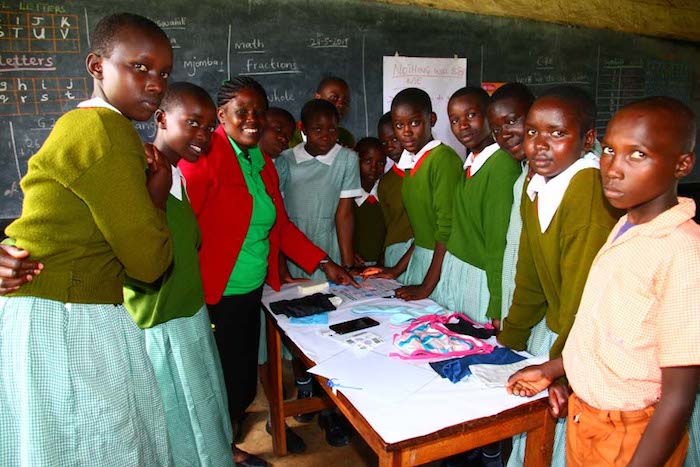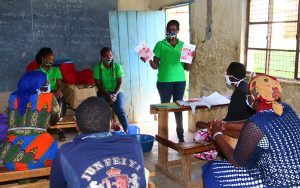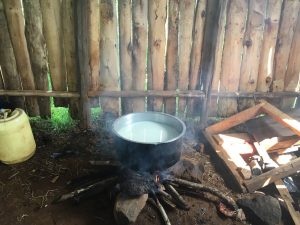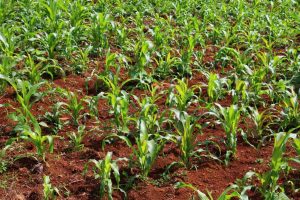1. What is your name and what is your role with Brighter Communities Worldwide?
My name is Carol Galvin and I work as a Development Analyst in the Irish office of Brighter Communities Worldwide. As part of my role I source funding for our various programmes in Kenya and also report back to donors on projects they are supporting.
2. What do school toilets look like in the schools in Kenya?
As part of my role, I have visited Kenya many times and have visited many of the schools we work with there. Nearly all toilets in the region where we work in Kenya are pit latrines. The conditions of the toilets in schools vary, but many are in poor repair, damaged and not pit for purpose. The numbers available are most often not adequate for the number of kids in the school, like 8 available for nearly 400 children.
3. How do the schools access water?
Access to water can be difficult for schools, many don’t have any access and kids bring some water in from home if it is available there. If the school is near a river, children are often sent to collect or one particular school I know of had a donkey that they used to bring water from a river. We work with schools to help them secure funding to build new toilets and water tanks so access to facilities is improved. Rain water harvesting is a simple but effective tool used by many schools in the region, something we should be doing more of all over the world.
4. Do girls and women in the community where you work purchase sanitary pads to use when they have their periods?
In communities where we work, money is tight and many people are living below the poverty line. Purchasing sanitary pads is hard, for many reasons – finding them in local shops or markets can be difficult and the cost of them is high. Other products like tampons and menstrual cups aren’t often used in rural Kenya because of cultural beliefs and lack of information about how to use them.
5. What happens for girls and women in the community when they can’t purchase or access sanitary pads?
When interviewing women and girls about menstrual health for our programme evaluation, we asked them this question. Many of them had been in a position where they have had to use things readily available to them and cheap to manage during their period. Pieces of cloths and blankets, tissue paper, pieces of cotton wool or bits of mattress, feathers and leaves were some of the items mentioned by them. And some just said they do without anything and just stay at home.
6. What happens when a girl regularly misses a week each month out of school when she has her period?
If a girl regularly misses school then it does not take long for her to fall behind on school work, and if you fall behind then it can be hard to catch up. Potentially this can lead to girls dropping out of school all together. A girl without an education becomes more vulnerable to early marriage, teenage pregnancy, diseases (including HIV/AIDS) and has limited life choices. In Kenya, girls who do not complete secondary school have on average 8 children in their lifetime; those who complete secondary school have two or three children. With a completed secondary education there is greater potential for economic independence for girls and women along with improved health, self-esteem and gender equality in the community.
7. What do the reusable sanitary pads look like?
Reusable sanitary pads we make available to girls in school and women in communities where we work, don’t look all that different from a regular disposable pad. They just have no plastic; usually they are made of good absorbent materials like cotton and can be placed in your underwear like a disposable one. The big difference is of course you can wash and reuse which really makes them affordable and cost effective, as well as far better for the environment.
8. What is the main impact of lack of sanitary products on women in the community?
A lack of sanitary products and basic hygiene facilities to be able to manage their periods is very damaging. Women and girls for one week of every month each year have to make sacrifices and not do the things they would normally do. Their lives are limited by their periods each month and hits leads to them not being able to fulfil their potential and reach their goals.
9. What kind of myths and taboo’s surround menstruation in the community?
This is another question we ask of women and girls when we are taking about menstrual health as taboos and myths can be as damaging as lack of access to products and facilities. In the communities where we work, taboos and myths often come from periods being seen as unclean, dirty and impure when in actual fact they are the most natural thing in the world. Some examples we often hear of in regards to taboos and myths include – not to touch things that can be used by the public like utensils; not to go to church; not to tend vegetables or cook for others, not to milk a cow or it will go dry, I have even heard it referred to as cursed.
10. What is Girls for Girls?
Girls for Girls is a programme we run in schools to improve Menstrual Hygiene Management. It is a combination of education, health and economic empowerment initiatives to enable girls to stay in school. It includes provision of reusable sanitary towels cost shared between Brighter Communities Worldwide, the school and the girls.
11. What is Jiamini?
Jiamini means “Believe in yourself” and it is a menstrual health programme we run for women in the communities. Through education, eradication of myths and taboos, involvement of men and boys and provision of sanitary towels we enable women and girls to believe in themselves, to regain their self-confidence and improve their livelihoods.
12. What do you think needs to happen so that people in communities will speak more openly about menstruation?
I think all over the world we need to be more open about menstruation. We need to engage men and boys not just women and girls, by involving everyone in the conservation. By doing this it will become normal and natural, and not just be discussed in hushed tones and behind closed doors. By it becoming natural to talk about it, we will not have taboos and myths surrounding it and everyone take a part in creating solutions and knocking down the barriers it puts in place especially in poorer areas of the world.
13. What do the words ‘Nothing Will Stop Me’ mean to you?
To me it means to keep trying and to find solutions, support and the path needed to achieve your dreams!





